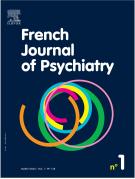Brief report: A positive association between the DAT1 gene and crack cocaine use disorders in a French Afro-Caribbean population - 29/05/20
 , Sandrine Lamy a, Nicolas Ballon d, e, Louis Jehel b, c, f, Florence Thibaut a, g
, Sandrine Lamy a, Nicolas Ballon d, e, Louis Jehel b, c, f, Florence Thibaut a, gHighlights |
• | Possible association between two DAT1 polymorphisms and crack cocaine use disorder. |
• | Neither ADHD nor impulsivity might mediate the relationship between crack use disorder and the DAT gene. |
• | Sensation-seeking is partly linked to crack cocaine use disorder and the DAT1 gene. |
Summary |
Introduction |
Crack cocaine use disorder (CCUD) is a major public health with a strong heritability component.
Objectives |
This study was aimed to investigate the putative association between the dopamine transporter gene (DAT1/SLC6A3) and crack-cocaine use disorders (CCUD) as well as the possible involvement of attention-deficit hyperactivity disorder (ADHD), impulsivity and sensation-seeking.
Methods |
Seventy-seven male subjects with CCUD were compared with 60 male control subjects of Afro-Caribbean origin. The Barratt Impulsivity Scale, the Wender Utah scale Scale-25 item and the Zuckerman Sensation-Seeking Scale were used. The subjects’ DNAs were genotyped by quantitative PCR (TaqMan method).
Results |
We found an association with two SNPs (rs6347 and rs27048) of the DAT gene in crack-cocaine use disorder, and a significantly lower frequency of one of the three haplotype blocks of the DAT gene (AT haplotype, defined by the two previous SNPs) and CCUD.
Conclusion |
DAT1 rs6347 and rs27048 polymorphisms seem to be associated with CCUD. The risk-effect of these polymorphisms appeared to be specific to individuals who are crack users rather than being driven by impulsivity or ADHD.
El texto completo de este artículo está disponible en PDF.Keywords : Crack cocaine, Cocaine, Crack cocaine use disorder, DAT, DAT1 gene, ADHD, Impulsivity, Sensation seeking
Esquema
Vol 1
P. 25-30 - mars 2020 Regresar al númeroBienvenido a EM-consulte, la referencia de los profesionales de la salud.
El acceso al texto completo de este artículo requiere una suscripción.
¿Ya suscrito a @@106933@@ revista ?

